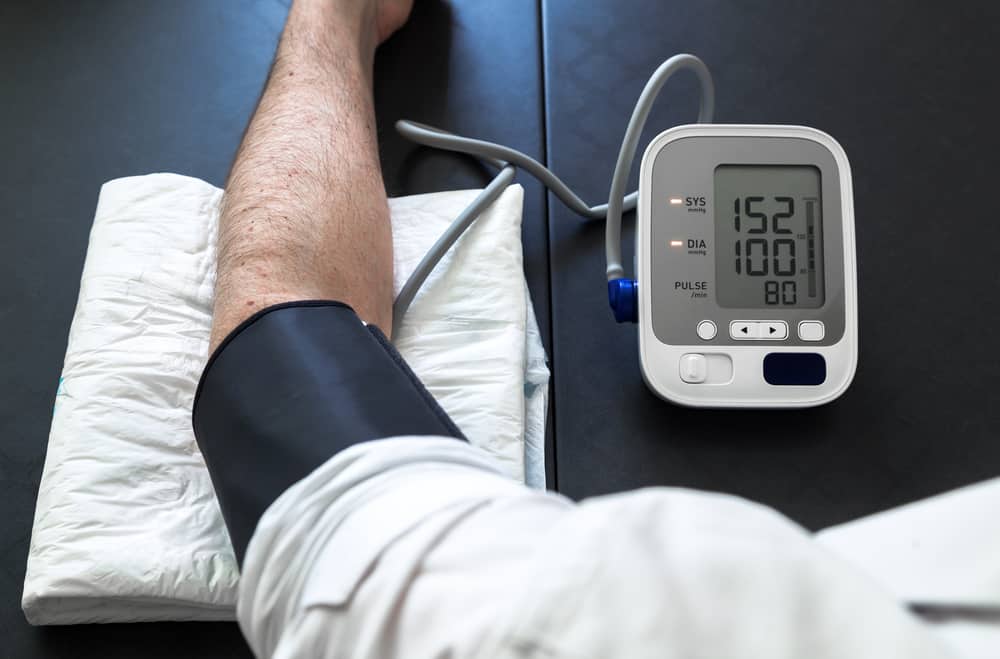Contents:
- Medical Video: High Blood Pressure | Hypertension | Nucleus Health
- Complications of hypertension to watch out for
- Heart attack
- Heart failure
- Stroke
- Aneurysm
- Kidney problems
- Eye problems
- Metabolic syndrome
- Difficulty in remembering and focusing
Medical Video: High Blood Pressure | Hypertension | Nucleus Health
Hypertension in general cannot be felt and does not also cause significant symptoms. So many people who often do not realize that they have high blood pressure, or worse even underestimate this condition - "If it's just sick, then go to the doctor".In fact, high blood pressure that is left or not treated properly can have a serious impact on the health of the body. Even it is not impossible to end death. What are the possible complications of hypertension?
Complications of hypertension to watch out for
Normal blood pressure is 120/80 mmHg. If it's more than this number, then someone is said to be at risk of developing high blood pressure or hypertension. Hypertension occurs when a person's blood pressure has reached 140/90 mmHg when examined several times.
If high blood pressure is left alone, this can damage blood vessels and organs in the body and can cause hypertension complications. Reporting from the Mayo Clinic, several complications of hypertension that can occur are:
Heart attack
High blood pressure can cause hardening and thickening of the arteries of the arteries. This is called atherosclerosis. Atherosclerosis causes blockage of blood vessels, so the heart does not get enough oxygen. As a result, you can have a heart attack. The most common warning symptoms of heart attack are chest pain and shortness of breath.
Heart failure
When high blood pressure, the heart muscle pumps blood harder to meet the blood needs of all parts of the body. This causes the heart muscle to thicken so long that the heart has difficulty pumping enough blood. Consequently, heart failure can occur. Common symptoms of heart failure are shortness of breath, fatigue, swelling in the wrists, legs, stomach, and blood vessels in the neck.
Stroke
Stroke can occur when the flow of oxygen-rich blood to some areas of the brain is disrupted, for example because there is a blockage or a broken blood vessel. This blockage occurs because of atherosclerosis in the blood vessels. In people who have hypertension, a stroke may occur when the blood pressure is too high so that blood vessels in one area of the brain rupture. Stroke symptoms include paralysis of the face, hands and feet, difficulty speaking, and difficulty seeing.
Aneurysm
Very high blood pressure can cause one part of the blood vessel to weaken and protrude like a balloon, forming an aneurysm. Aneurysms usually do not cause signs or symptoms for years. However, if the aneurysm continues to grow and eventually breaks, this can be life threatening.
Kidney problems
Uncontrolled high blood pressure can also cause the blood vessels in the kidneys to narrow and weaken. This can then interfere with kidney function and cause chronic kidney disease.
Eye problems
Not only can it affect blood vessels in the kidneys, high blood pressure can also affect blood vessels in the eye. Blood vessels in the eye can also narrow and thicken due to high blood pressure. The blood vessels can then rupture and cause eye damage, ranging from blurred vision to blindness.
Metabolic syndrome
The metabolic syndrome is a collection of metabolic disorders in the body. One risk factor is high blood pressure. High blood pressure coupled with high blood sugar levels, high cholesterol levels (low good cholesterol levels and high triglyceride levels), and large waist circumferences were diagnosed as metabolic syndrome.
Difficulty in remembering and focusing
Uncontrolled high blood pressure can also cause cognitive changes. You may experience problems in thinking, remembering, and learning. Signs such as difficulty in finding words when speaking and losing focus while in conversation.












